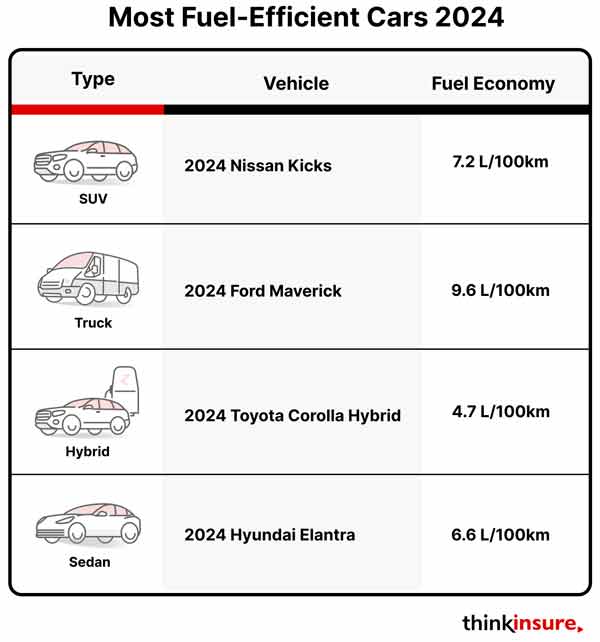Index Surge: Amplifying Your Insights
Stay updated with the latest trends and news across various industries.
Driving Smart: The Secret Life of Fuel-Efficient Cars
Unlock the secrets of fuel-efficient cars and discover how to drive smarter while saving money and the planet!
Top 10 Tips for Maximizing Fuel Efficiency in Your Car
Maximizing fuel efficiency in your car is crucial not only for saving money but also for reducing your carbon footprint. Here are top 10 tips to help you get the most out of each gallon of gasoline:
- Maintain Your Vehicle: Regular maintenance such as oil changes, air filter replacements, and spark plug checks can significantly improve your car's fuel efficiency.
- Keep Tires Properly Inflated: Under-inflated tires can increase rolling resistance, causing your engine to work harder and consume more fuel.
- Drive Smoothly: Avoid aggressive driving habits such as rapid acceleration and hard braking, which can lower your fuel economy by up to 33% on the highway.
Additionally, adopting smart driving strategies can further enhance your fuel efficiency. Consider these essential tips:
- Reduce Weight: Remove unnecessary items from your trunk, as every 100 pounds can reduce your fuel efficiency by about 1%.
- Limit Air Conditioning Use: Running your AC can increase fuel consumption, especially in stop-and-go traffic.
- Plan Trips Wisely: Combine errands into one trip to reduce the number of cold starts, which are less fuel-efficient.
- Use Cruise Control: On highways, using cruise control can help maintain a consistent speed and improve your fuel economy.
- Monitor Fuel Consumption: Keep track of your fuel usage and make adjustments to your driving habits as necessary.

How Do Hybrid and Electric Vehicles Work? A Deep Dive
Hybrid and electric vehicles utilize advanced technologies to reduce fuel consumption and minimize emissions, contributing positively to environmental sustainability. At the core of hybrid vehicles is the combination of a traditional internal combustion engine (ICE) and an electric motor. This dual powertrain system allows for improved fuel efficiency as the vehicle can seamlessly switch between the two power sources. During low-speed driving or when idling, the electric motor takes precedence, helping to save fuel. Additionally, many hybrids feature regenerative braking systems that capture and store energy typically lost during braking, using it to recharge the vehicle's battery.
Electric vehicles (EVs), on the other hand, are powered entirely by electricity, stored in large battery packs. These vehicles rely on electric motors, which provide instant torque and create a smooth, responsive driving experience. Charging an EV can be done at home using a standard outlet or at dedicated charging stations, which vary in speed. With advancements in battery technology, modern electric vehicles are now capable of traveling significant distances on a single charge, making them practical for everyday use. As the infrastructure for charging stations continues to grow, EVs are becoming more accessible and appealing to consumers worldwide, heralding a shift towards a cleaner and more sustainable future in transportation.
What Makes a Car Fuel Efficient? Key Features Explained
When it comes to understanding fuel efficiency, several key features play a crucial role in determining how well a car conserves fuel. Primarily, the type of engine and its design can significantly impact fuel consumption. For example, vehicles equipped with smaller, more efficient engines or hybrid systems can achieve better mileage compared to traditional gasoline engines. Additionally, transmission systems like CVTs (continuously variable transmissions) optimize engine performance by maintaining the ideal RPM for fuel savings. Other critical features include aerodynamic design, which minimizes drag, and lightweight materials that reduce the overall weight of the vehicle, enabling more efficient fuel usage.
In terms of technology, fuel management systems and advanced engine control units help monitor and optimize the combustion process for greater efficiency. The implementation of start-stop technology further enhances fuel economy by shutting off the engine when the vehicle is idling, drastically reducing wasted fuel in urban environments. Furthermore, features such as low rolling resistance tires and proper vehicle maintenance practices contribute significantly to maximizing fuel efficiency. By focusing on these aspects, drivers can not only save on fuel costs but also minimize their environmental impact.